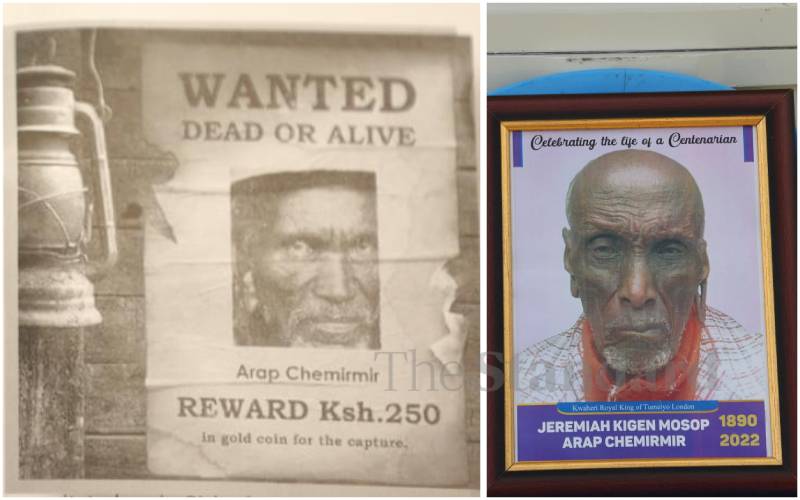×
The Standard e-Paper
Join Thousands Daily

Jeremiah Kigen Mosop arap Chemirmir, died without being recognised by the government. [Peter Ochieng, Standard]
With a bounty of Sh250 offered by the British colonialists for his capture after engaging in a fierce fight with one of them, he opted to lead a silent life upon his return from prison.